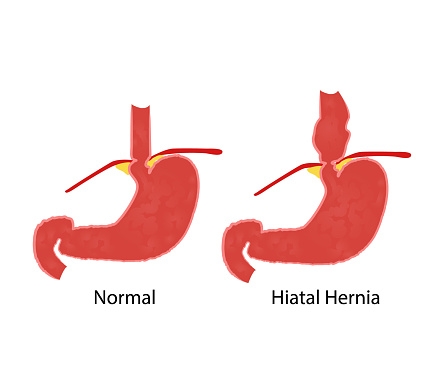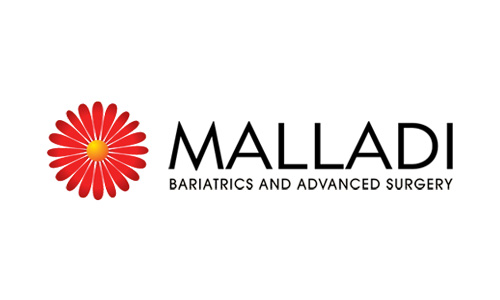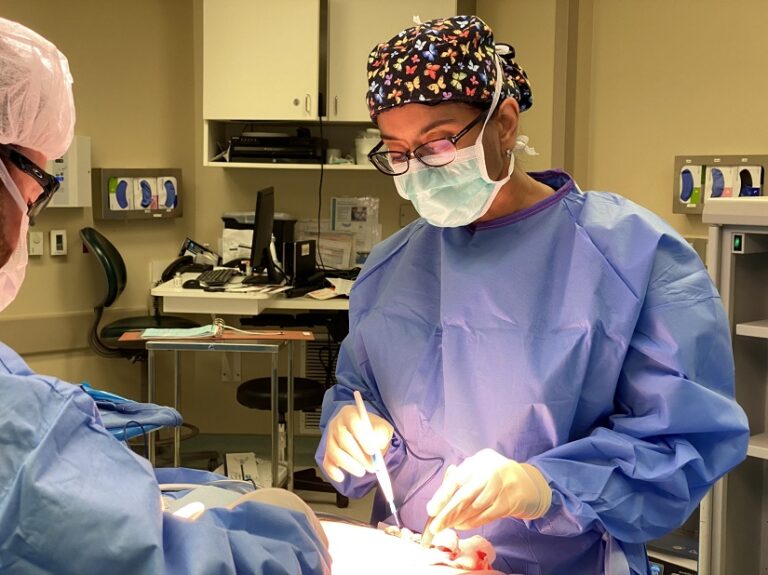What You Need to Know About Hiatal Hernias
Hiatal hernias can cause acid reflux and other problems. If a hiatal hernia causes GERD (gastroesophageal reflux disease), discomfort, or difficulty breathing, then it should be treated promptly.
Hiatal Hernia Definition
A hiatal hernia occurs in the diaphragm, which is a wall of muscle between your chest and abdominal region. In the center is a hole—called the hiatus—that allows the esophagus to pass through to the stomach underneath. If the hiatus is too large, it’s called a hiatal hernia.
The problem with a hiatal hernia is that it may allow the stomach to poke through into the chest cavity, potentially causing a number of symptoms.
Symptoms and Diagnosis
In most cases, hiatal hernias have no symptoms, in which case they aren’t really an issue. However, they may sometimes result in the following issues:
- Heartburn/acid reflux from pinching of the stomach
- Throat irritation
- Regurgitation
- Difficulty or discomfort when swallowing
- Abdominal pain
- Chest pain
- Shortness of breath
A hiatal hernia may be diagnosed in a number of ways, including:
- Upper GI study, or “barium swallow,” which uses an x-ray to examine the gastrointestinal tract.
- Upper endoscopy, in which the stomach is examined with a small camera.
At times, hiatal hernias are discovered by accident in the course of an unrelated CT scan or x-ray.
Possible Causes of Hiatal Hernias
It’s often unclear why hiatal hernias occur, but some possible contributing factors may include:
- An oversized hiatus at birth.
- Genetic predisposition.
- Injuries to the diaphragm through accidents or surgeries.
- Age.
- Consistent prolonged strain to the abdominal region, i.e. from heavy lifting, coughing, constipation, etc.
- Smoking.
- Obesity.
Treatment Options for Hiatal Hernias
An asymptomatic hiatal hernia requires no treatment, but if symptoms exist, there are a few different options.
One way is to treat the symptoms themselves. For instance, acid reflux can be controlled by removing certain foods from your diet, losing weight, and using certain medications.
However, sometimes a surgical solution is best. Hiatal hernia correction surgery tightens the hiatus with stitches, and when done with the use of a laparoscope, only requires a few small incisions. The operation can solve the problem and end many of the symptoms mentioned above.
Hiatal Hernia Prevention
If obesity is a factor, one way to prevent a hiatal hernia from developing is to lose weight. If you smoke, quitting can help as well.
In addition, the symptoms of a hiatal hernia can be prevented by simple lifestyle changes, including the following:
- Avoid clothing that compresses the abdominal region.
- Refrain from overeating.
- Raise the head of your bed by a few inches.
- Avoid bending over or lying down after eating.
- Treat contributing causes.
In the event that you do develop a hiatal hernia and start experiencing symptoms, hiatal hernia correction surgery can drastically improve your quality of life. If you are suffering from a hiatal hernia, contact Dr. Malladi to see if a surgical solution is right for you.







